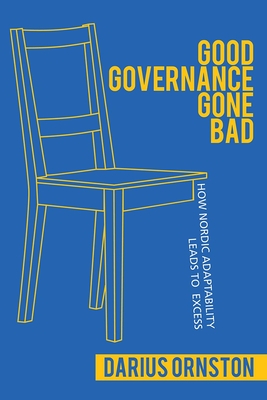Expedite your nonfiction book discovery process with Readara interviews, summaries and recommendations, Broaden your knowledge and gain insights from leading experts and scholars
In-depth, hour-long interviews with notable nonfiction authors, Gain new perspectives and ideas from the writer’s expertise and research, Valuable resource for readers and researchers
Optimize your book discovery process, Four-to eight-page summaries prepared by subject matter experts, Quickly review the book’s central messages and range of content
Books are handpicked covering a wide range of important categories and topics, Selected authors are subject experts, field professionals, or distinguished academics
Our editorial team includes books offering insights, unique views and researched-narratives in categories, Trade shows and book fairs, Book signings and in person author talks,Webinars and online events
Connect with editors and designers,Discover PR & marketing services providers, Source printers and related service providers

Good Governance Gone Bad: How Nordic Adaptability Leads to Excess
Political Science > Political Economy
- Cornell University Press
- Paperback
- 9781501730177
- 9.02 X 5.98 X 0.62 inches
- 0.9 pounds
- Political Science > Political Economy
- (Single Author) Asian American
- English
Readara.com
Book Description
If we believe that the small, open economies of Nordic Europe are paragons of good governance, why are they so prone to economic crisis? In Good Governance Gone Bad, Darius Ornston provides evidence that adapting flexibly to rapid, technological change and shifting patterns of economic competition may be a great virtue, but it does not prevent countries from making strikingly poor policy choices and suffering devastating results. Home to three of the big five financial crises in the twentieth century, Nordic Europe in the new millennium has witnessed a housing bubble in Denmark, the collapse of the Finnish ICT industry, and the Icelandic financial crisis.
Ornston argues that the reason for these two seemingly contradictory phenomena is one and the same. The dense, cohesive relationships that enable these countries to respond to crisis with radical reform render them vulnerable to policy overshooting and overinvestment. Good Governance Gone Bad tests this argument by examining the rise and decline of heavy industry in postwar Sweden, the emergence and disruption of the Finnish ICT industry, and Iceland's impressive but short-lived reign as a financial powerhouse as well as ten similar and contrasting cases across Europe and North America. Ornston demonstrates how small and large states alike can learn from the Nordic experience, providing a valuable corrective to uncritical praise for the Nordic model.
Author Bio
Darius Ornston is Associate Professor at the Munk School of Global Affairs & Public Policy at the University of Toronto where he specializes in the politics of cooperation and change. An expert in Nordic innovation policy, his first book, When Small States Make Big Leaps, illustrates how those communities use cooperation to enter new, high-technology markets. In Good Governance Gone Bad, he demonstrates how the same, tight-knit networks which accelerate reform and restructuring can lead to policy overshooting, overinvestment, and economic crisis.
Since moving to Canada, his research has focused on Canadian cities, including their resilience to anchor firm collapse and the role of storytelling as a form of collective action. His research on the causes and consequences of cooperation has been published by Comparative Political Studies, Comparative Politics, Economic Geography, the European Bank for Reconstruction and Development, Governance, the OECD, Review of Policy Research, the University of Michigan Press, and West European Politics.
With Dan Breznitz, Professor Ornston is also working on the design of innovation agencies and strategies to encourage risk-taking and experimentation in the public sector. Their research on radically innovative developmental agencies has appeared in Comparative Political Studies, Industrial & Corporate Change, and Socio-Economic Review.
As part of the Munk School’s Master of Global Affairs program, Professor Ornston teaches one section of “Global Innovation Policy” as well as three second-year seminars. In “The Political Economy of the Welfare State” students develop strategies for reforming big, slow-moving, highly politicized institutions. “The Political Economy of Trade” focuses on the ways smaller states circumvent the constraints associated with the global trading system. “Innovation and the City” examines the tools fiscally constrained local policymakers can use to shape innovation and regional economic development.
Source: University of Toronto Munk School
Videos


Community reviews
No Community reviews

